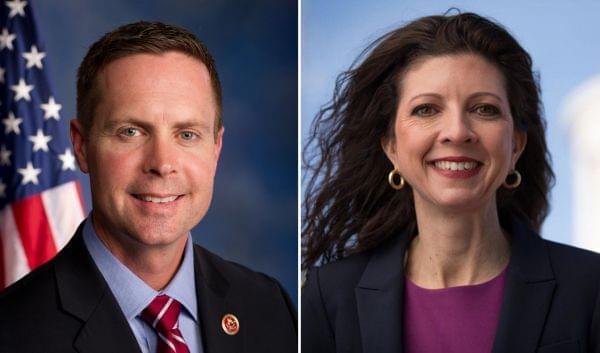After Trump Tweets, Londrigan Wants To Shift Focus Back To ‘Real Issues’

Betsy Dirksen Londrigan is again challenging U.S. Rep. Rodney Davis, R-Taylorville, in the 13th Congressional District, which includes parts of Bloomington-Normal. Provided by candidates
Democratic congressional candidate Betsy Dirksen Londrigan said the president’s racist rhetoric about four members of Congress is “very worrisome” in part because it prevents “real issues” like health care from being addressed.
Londrigan is again challenging U.S. Rep. Rodney Davis, R-Taylorville, in the 13th Congressional District, which includes parts of Bloomington-Normal. The Springfield Democrat narrowly lost to Davis in 2018.
Appearing on WGLT’s Sound Ideas in the wake of the president’s racist tweets and the “send her back!” chant, Londrigan said she worries about the divisiveness she sees, especially when it’s amplified by the president. There are “real issues” that need to be addressed, she said, including lowering the cost of prescription drugs and ongoing court challenges to the Affordable Care Act.
“Those are the issues that I think people want addressed, and the divisiveness that people see and hear is preventing that from happening,” Londrigan said.
Londrigan said she would have voted for a resolution that passed the House earlier this week along party lines, condemning the president for his racist tweets. Davis voted against the resolution but said he disagrees with Trump’s rhetoric and personal attacks.
“I will continue to stand against racism and hatred and bigotry, no matter where it comes from,” Londrigan said.
Some House Democrats are concerned that the latest border crisis and feud between President Trump and four House progressives is causing immigration to overtake health care as main issue for 2020.
Last week Democratic House Speaker Nancy Pelosi said Democrats are focused, and immigration is not overtaking health care as their main issue.
“No, health care is our issue. Immigration is a value. It’s not an issue for us,” Pelosi said.
Immigration shouldn’t be a partisan issue, Londrigan said. The U.S. needs to invest in border security, hire more federal immigration judges, and create a path to citizenship, she said.
“These one-off fixes are not comprehensive,” Londrigan said. “What we really need is a comprehensive approach and a path to citizenship.”
But it’s health care that 13th District voters care about most, Londrigan said. If elected, she said her first priority would be to allow Medicare to negotiate for lower drug prices.
Current U.S. law prohibits Medicare officials from interfering in the negotiations between drugmakers and the insurance companies that administer Medicare’s prescription drug plans. Medicare accounts for about 29 percent of all spending on prescription medicines in the U.S. each year.
The large field of Democratic presidential candidates for 2020 is split on bigger ideas for remaking the American health care system. Some favor Medicare for All, which would create a national single-payer health plan that would replace the whole private insurance system. Others support a public option, by which the government creates a health insurance program to compete with the private marketplace, one that, unlike Medicaid and Medicare, would be available to all.
Londrigan said many residents of the 13th District have “employer-provided health insurance that they love,” even if the costs are often high. She said she supports helping rural and smaller communities that lack options by creating a public option.
“It’s a way to bring competition to the market and lower overall costs and give people an alternative in rural and smaller communities specifically,” Londrigan said.

